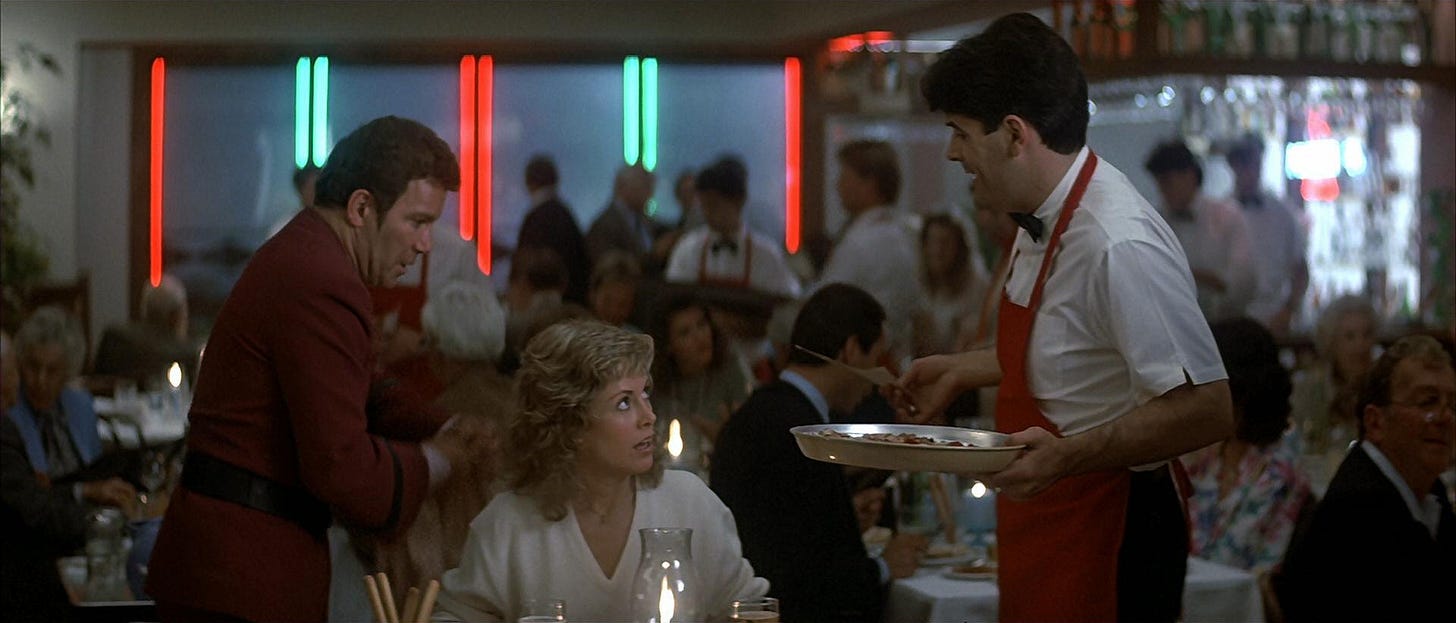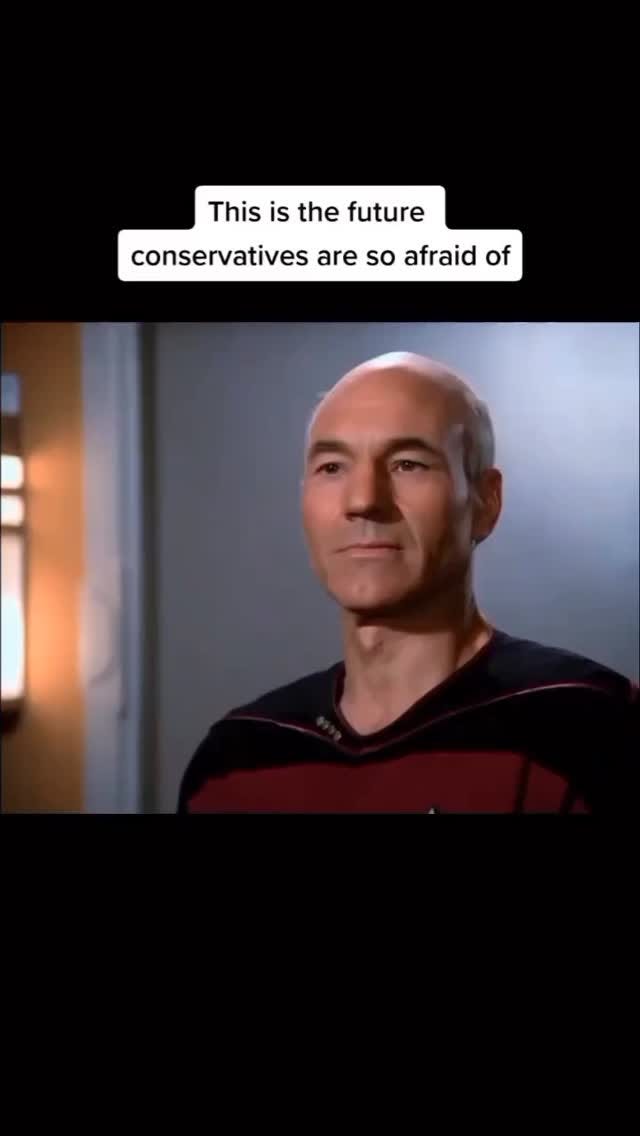The Future Conservatives Are Afraid Of
Ralph Offenhouse was right about one thing: “It’s about power.”
When it comes to the use of money in the Federation, that scene from Star Trek IV: The Voyage Home often comes to mind.
Gillian (Catherine Hicks) has to pick up the tab at the pizza place after she deadpans to Admiral Kirk (William Shatner), “Don’t tell me: They don’t have money in the 23rd century,” to which Kirk replies, innocently, “Well, we don’t.”
That brief exchange is played for laughs, and it also firmly established a non-currency-based economy in Star Trek canon.
But when it comes to the use of — and more importantly, the perception of — money in the future of Star Trek, I’ve always found those scenes with Captain Picard (Patrick Stewart) much more instructive and incisive.
There’s that sequence in Star Trek: First Contact in which he and Lily (Alfre Woodard) are fleeing the Borg aboard the Enterprise-E and he explains that the economics of the future “is somewhat different,” since the “acquisition of wealth is no longer the driving force in our lives.”
But, in my opinion, Picard’s scenes in the Star Trek: The Next Generation’s first-season episode, “The Neutral Zone,” are among the very best moments in canon talking about money and our perceptions of money and wealth.
Please support my work…
In particular, there’s the scene in which Picard faces off with Ralph Offenhouse (Peter Mark Richman), one of those humans from the 20th century found earlier in the episode.
Offenhouse, who clearly had been quite wealthy in the past, is most concerned about the state of his wealth and finances in the 24th century.
Picard admonishes Offenhouse by saying that in the future, humanity has “eliminated hunger, want, the need for possessions.”
“You’ve got it all wrong. It has never been about possessions. It’s about power.”
One very perceptive fan recently posted that scene on Instagram with the caption, “This is the future conservatives are so afraid of.”
If you look around today, Offenhouse certainly has a point. A relative handful of millionaires and billionaires have amassed a huge amount of power around the world.
Those on the political right seem predisposed towards supporting such a strict hierarchical society and much more comfortable with ideas of inequity.
Conservatives often glorify hierarchies, as demonstrated by this aphorism by conservative philosopher Nicolás Gómez Dávila: “Hierarchies are celestial. In hell all are equal.” Even the word “hierarchy” has religious roots and translates to “rule of a high priest.”
As one researcher observed:
One of the reasons illiberal post-modern conservatives like Donald Trump and Viktor Orbán were popular was the feeling that too many privileges and too high a status had been granted to the unworthy;
They tend to feel this way out of a need for order and control, and a fear of perceived chaos.
As Offenhouse admits in this pivotal scene, it’s about a desire for control.
But Picard ultimately is the one who is truly right when he reveals that that “kind of control is an illusion.”
When all of us can see that illusion for what it is, that will be the day — as Picard puts it — that “we’ve grown out of our infancy.”
Hailing Frequencies Open…
Here’s the latest that we've been keeping up with…
Donald Trump slammed by Star Trek legend after calling to make Canada the 51st state
Interview: Tawny Newsome On Finding The Sweet Spot For Her Star Trek Workplace Comedy
30 Years on, Voyager‘s B’Elanna Split Episode Remains Fascinatingly Fraught
MOMENT FOR TREK
Enjoy this edition of Subspace Chatter?
Please make sure you …
And also …






